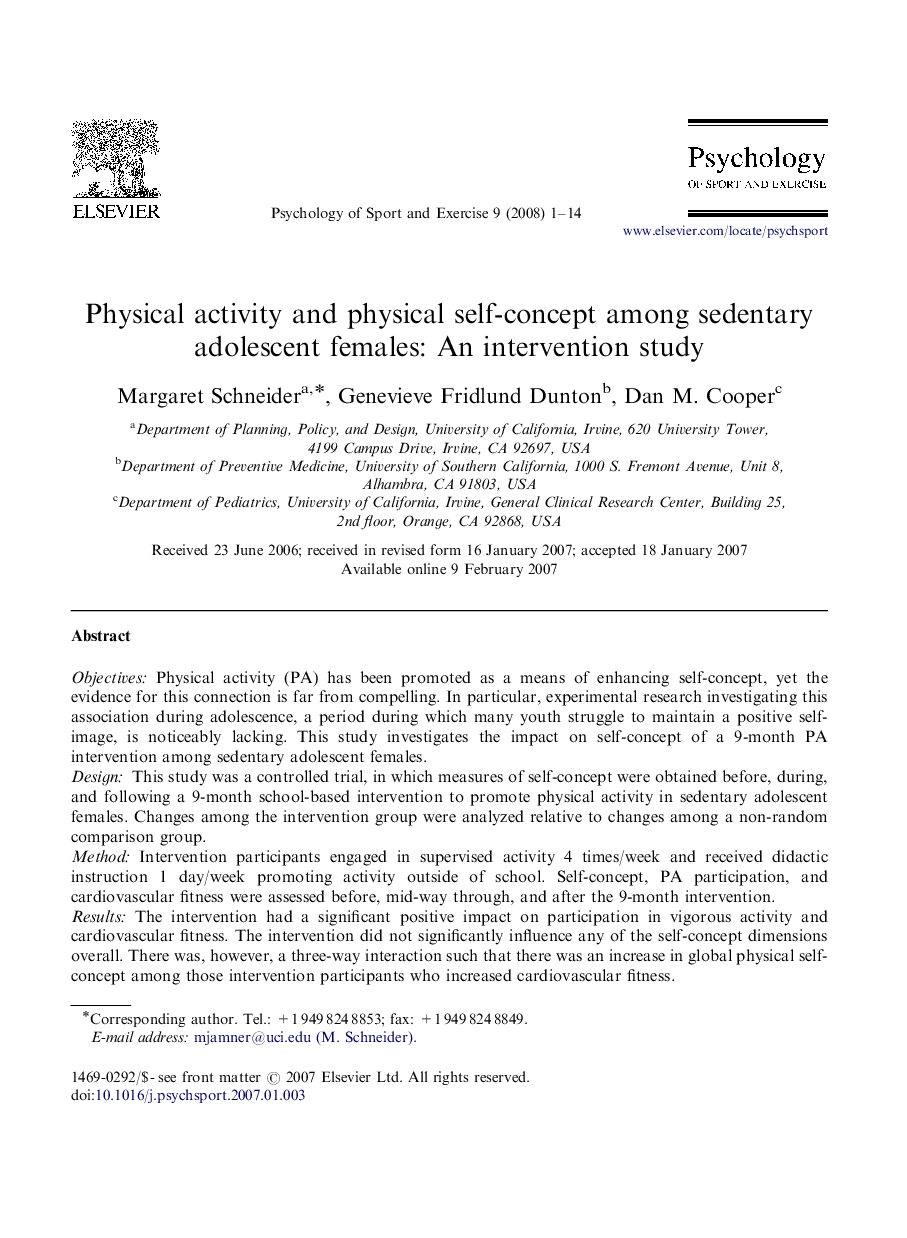| Article ID | Journal | Published Year | Pages | File Type |
|---|---|---|---|---|
| 895029 | Psychology of Sport and Exercise | 2008 | 14 Pages |
ObjectivesPhysical activity (PA) has been promoted as a means of enhancing self-concept, yet the evidence for this connection is far from compelling. In particular, experimental research investigating this association during adolescence, a period during which many youth struggle to maintain a positive self-image, is noticeably lacking. This study investigates the impact on self-concept of a 9-month PA intervention among sedentary adolescent females.DesignThis study was a controlled trial, in which measures of self-concept were obtained before, during, and following a 9-month school-based intervention to promote physical activity in sedentary adolescent females. Changes among the intervention group were analyzed relative to changes among a non-random comparison group.MethodIntervention participants engaged in supervised activity 4 times/week and received didactic instruction 1 day/week promoting activity outside of school. Self-concept, PA participation, and cardiovascular fitness were assessed before, mid-way through, and after the 9-month intervention.ResultsThe intervention had a significant positive impact on participation in vigorous activity and cardiovascular fitness. The intervention did not significantly influence any of the self-concept dimensions overall. There was, however, a three-way interaction such that there was an increase in global physical self-concept among those intervention participants who increased cardiovascular fitness.ConclusionsThese findings indicate that a PA intervention among sedentary adolescent females enhanced global physical self-concept for a subset of intervention participants who manifested positive changes in fitness.
